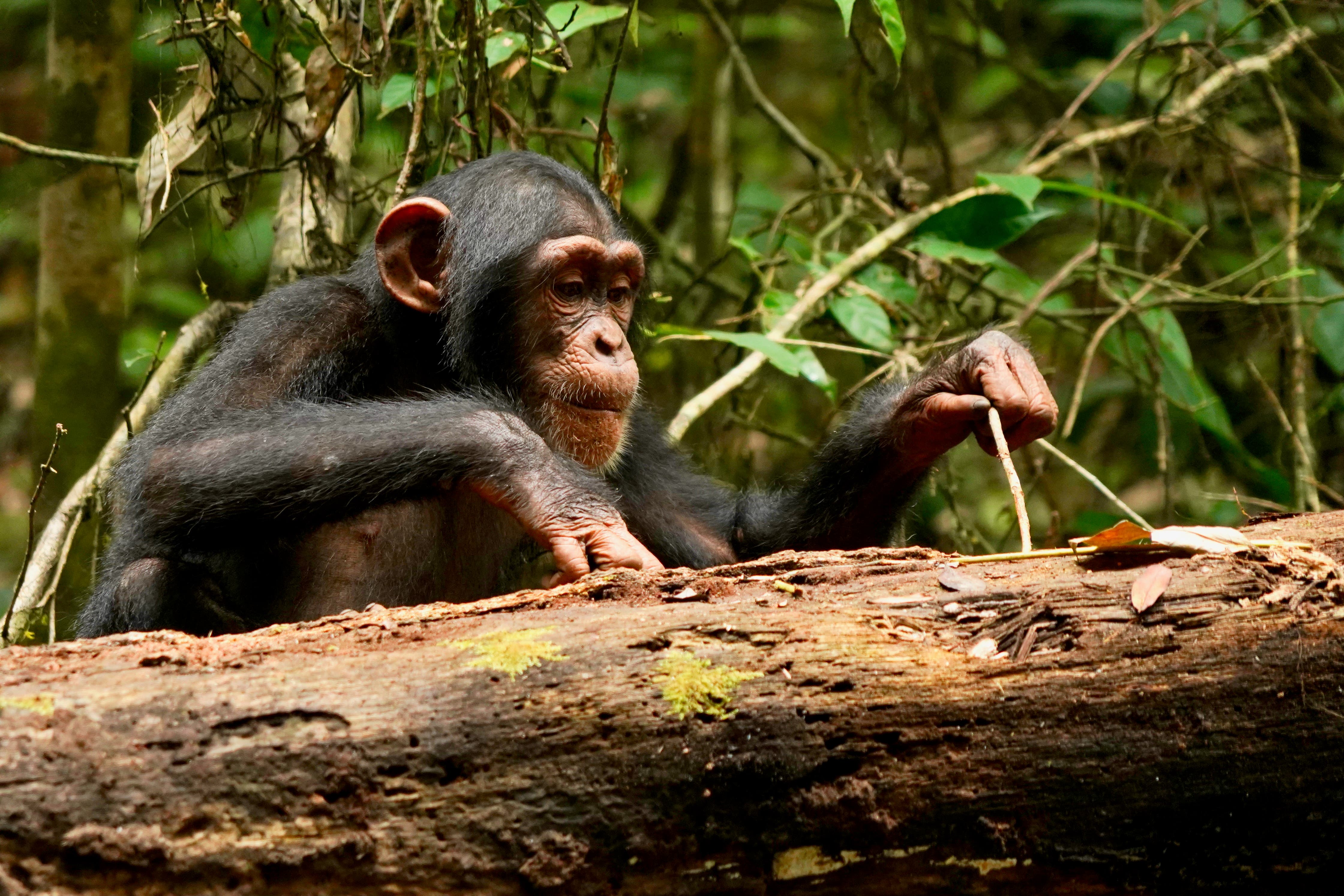Chimps – like humans – may be lifelong learners, researchers say
Study shows these great apes continue to learn and hone their tool-using skills well into adulthood.

Chimpanzees, like humans, may be life-long learners, a study suggests.
Researchers have found these great apes continue to learn and hone their tool-using skills well into adulthood.
The team observed the chimps became better at using their fingers to grip and manipulate their stick tools as they got older, and continued to sharpen their skills in the first 20 years of their lives.
The team said its findings, published in the journal Plos Biology, show perfecting skills is more than just a matter of physical development and potentially related to mental learning capacities as well.
The work also helps shed light on the thinking and lifelong learning skills evolved in humans, according to the researchers.
They wrote: “Chimpanzees have one of the most extensive tool kit of non-human animals.”
The team added: “In wild chimpanzees, the intricacies of tool use learning continue into adulthood.
“This pattern supports ideas that large brains across hominids (group consisting of all modern and extinct Great Apes such as humans, chimpanzees, gorillas and their immediate ancestors) allow continued learning through the first two decades of life.”
For the study, an international team of researchers, led by Mathieu Malherbe from the Max Planck Institute for Evolutionary Anthropology in Germany, observed 70 wild chimps of various ages using sticks to retrieve food at Tai National Park in Ivory Coast.
The scientists analysed video recordings of the primates collected from the site over several years.
They focused on how the creatures became more skilled using sticks as tools to extract foods such as larvae and nut kernels.
Chimpanzees have one of the most extensive tool kit of non-human animals
The team observed six different types of grips: insertion (where the stick is entered into the cavity), lever (where the stick is used like a spoon to extract the food source from the cavity), prodding (where the stick pokes the inside of a cavity), screwing (where the stick is rotated with wrist movements in the cavity), stirring (where the stick is rotated in the cavity) and pounding (where the stick is used to hit the food source).
The researchers said some of the fine motor skills became fully functional by the age of six, progressing from full hand grip, where no fingers are used, to digits grip, where two or three fingers are used to guide the stick.
They said that using sticks to extract insects from hard-to-reach places or adjusting grip to suit different tasks were not fully developed until age 15, when chimps are considered to be adults.
The team said that the chimps’ ability to learn in adulthood is “a beneficial attribute for tool-using species, a key insight into the evolution of chimpanzees as well as humans”.
The authors wrote: “Wild chimpanzees seem to be able to find alternative strategies to limit their hand anatomy restrictions by choosing hand grips that allow them to apply both power and precision when using stick tools.”
The scientists said further research is needed to understand whether reasoning and memory are involved in the learning process.
Subscribe to Independent Premium to bookmark this article
Want to bookmark your favourite articles and stories to read or reference later? Start your Independent Premium subscription today.
